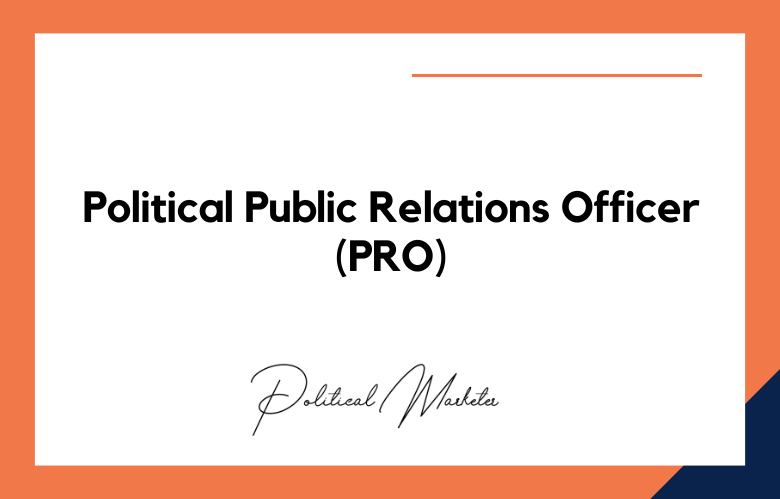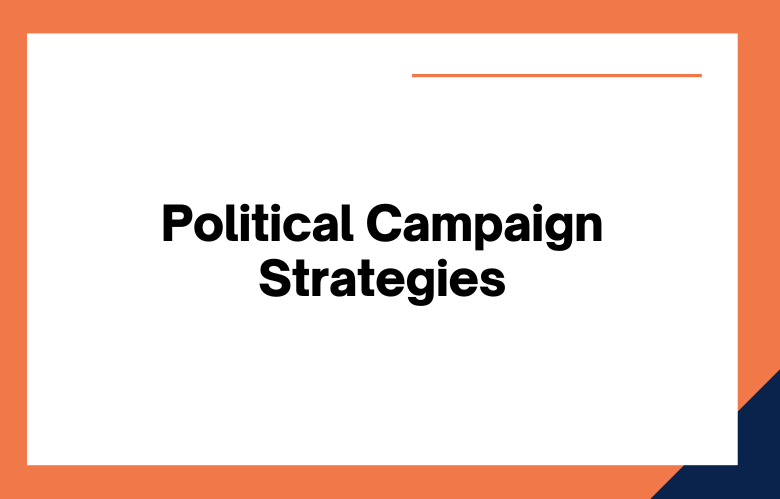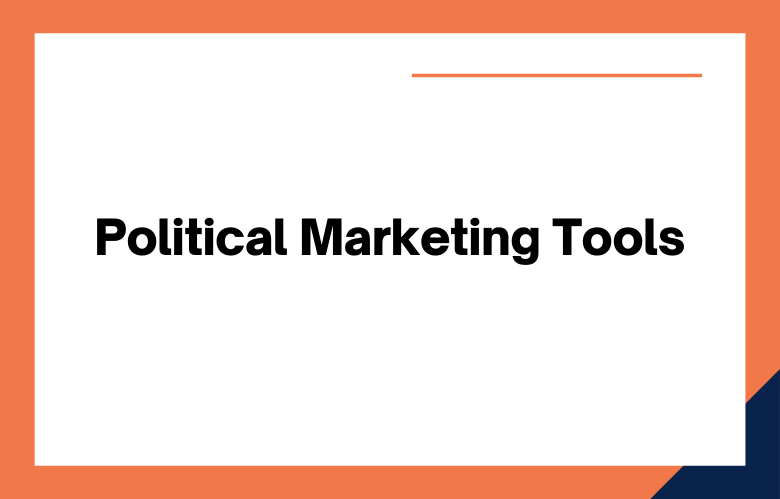Keeping up with the latest trends becomes essential as the political landscape changes. Personal Branding for politicians and political parties is an ever-changing part of this rapidly evolving business world. To succeed in a crowded field, you must know how to market yourself effectively. We will provide tips on personal Branding for politicians and political parties so you do not get lost in the mix!
The article discusses how to brand yourself as a politician, especially in the social media age. It also explores ways for political parties to build their brands and outlines some pitfalls.
The article discusses how to brand yourself as a politician, especially in the social media age. It also explores ways for political parties to build their brands and outlines some pitfalls.
Personal Branding for Politicians
IPersonalbranding is an integral part of your campaign. What do you feel when people think about you if you’re a politician? Do their feelings align with your values and goals for the country?
A politician needs to present their ideas in a clear, understandable manner. That’s why it is essential for them to understand the issues and develop skills like personal Branding and public relations.
If you have been working on your brand for a while but aren’t getting the desired results, perhaps it’s time to look at ways of repackaging yourself.
Creating a personal brand is essential if you are a politician. This way, people will know who you vote for and what you stand for.
Branding for Political Parties
Political parties need to develop a recognizable brand. This allows people to easily recognize the party and associate it with positive attributes if they like it or negative ones if they dislike it. A strong brand will generate more support and enable a party to win over the undecided.
Political parties need to be associated with a consistent and recognizable brand. It is one of the best ways to promote unity and support for your party.
The best way to brand political parties is through conducting surveys. This can be done by determining what the people want and then appealing to those needs.
One of the exciting things for a political party is Branding. If people aren’t interested in what you’re saying, they won’t vote for you!
How to Brand Yourself as a Politician
A strong brand is crucial for politicians. It’s essential to be sincere, honest, and likable.
If you want to be elected, people must know about you. One of the best ways to do this is through social media because everyone uses these platforms today. Also, never forget your audience and communicate effectively using words and phrases they understand.
The primary thing you need to do when running for office is brand yourself.
If you’re looking to get into politics, I recommend several things. First, be honest and ethical so people can trust you. Second, have passion for your cause and various points of view.
What Political Campaigns Can Teach Us About Personal Branding
A political campaign is one of the best examples of personal Branding. It’s simple but effective. The goal of creating a brand for everyone is to make them trust and believe in you, essentially leading them to vote for you.
One of the most important things to remember when job hunting is that your brand should be consistent across all platforms. This means using a similar tone in cover letters, resumes, and emails.
In a recent campaign, the politician was doing quite well in the polls. However, he needed to bolster his popularity with women and focused on that group for campaigning purposes.
Why Good Personal Branding Matters in Politics
You’ve probably heard that having a good personal brand is essential in politics. It’s not easy, but it does have extended-lasting benefits.
With more people involved in politics, a candidate’s character has become increasingly important. A good personal brand is essential to political success because it can show voters how dedicated you are to your beliefs.
A good personal brand is crucial to a politician’s success. While a politician’s brand should be distinct from another’s, it must also complement them to work well.
Politicians are often criticized for their bad image. But with good personal Branding, you can make yourself more likable to voters and increase your chances of winning elections.
In today’s digital age, personal Branding has become increasingly important in all walks of life. This is especially true in politics, where building and maintaining a strong and positive personal brand can be the difference between winning and losing an election.
Good personal Branding can help a political candidate connect with voters, raise funds, and earn media attention.
In contrast, candidates who fail to manage their brand effectively will likely struggle in these areas.
While many factors contribute to political success, personal Branding is now an essential tool in a politician’s arsenal.
Branding in politics is nothing new. Throughout history, politicians have used Branding to communicate their message and connect with voters. In recent years, however, the importance of personal Branding has become increasingly apparent.
Politicians must be savvy about presenting themselves online in a world where social media dominates the news cycle.
This means more than just having a carefully crafted message; it also means creating a genuine connection with voters. Personal Branding can help a politician stand out in a crowded field and build trust with the electorate.
In an era of information overload, personal Branding is more important than ever in politics.
Branding can make the difference between being seen as a trustworthy candidate voters can relate to and being seen as just another politician spouting empty platitudes. In today’s political climate, personal branding matters.
Branding in politics is nothing new. Throughout history, politicians have understood the power of a strong image and used it to their advantage.
With social media and 24-hour news cycles, the importance of good personal Branding has only increased in the modern era.
A well-crafted brand can help politicians build name recognition, garner support from key constituencies, and attract campaign donations.
It can also define an opponent and detract from their brand. In today’s political landscape, good personal Branding is essential for any politician who wants to be successful.
Branding in politics is nothing new. Throughout history, politicians have understood the power of a strong image and used it to their advantage.
With social media and 24-hour news cycles, the importance of good personal Branding has only increased in the modern era.
A well-crafted brand can help politicians build name recognition, garner support from key constituencies, and attract campaign donations. It can also define an opponent and detract from their brand. In today’s political landscape, good personal Branding is essential for any politician who wants to be successful.
In today’s world, personal Branding is essential in nearly every industry, but it’s especially necessary in politics.
In such a high-stakes field, people vote for candidates they trust and are connected to. One of the best ways to build trust and create a relationship is through personal Branding.
Good personal Branding in politics can involve everything from sharing your story in a relatable way to showing your human side.
When done correctly, Personal Branding can help you rise above the noise, win over voters, and ultimately, get elected. So, if you’re running for office, ensure you’re doing everything possible to create a solid personal brand. It could make all the difference on election day.
The Power of Branding in Politics
One of the best things about politics is that the power of Branding plays a role in electoral success. One study showed increased votes from candidates who used a more recognizable logo on their campaign materials. Branding is the most significant way to win an election. It’s essential to make sure that your name sticks in people’s ears so you can be referenced when talking about your opponent, and it helps increase support!
Branding is an effective way to get people’s attention during elections. Politicians can use logos, slogans, and other branding techniques to make a positive first impression on voters.
Political Branding is a powerful tool because it can influence the thoughts and feelings of large groups of people.
To understand how political Branding can affect an election, we must first define “political branding.” Political Branding combines all the messages that candidates and their parties project to voters, including party slogans, campaign logos, and speeches.
Political Branding uses marketing techniques to create a positive image for a politician or political party. It can mobilize voters and increase support but also mislead people.
Branding in politics is nothing new.
Candidates have long used slogans, logos, and other visual branding elements to differentiate themselves from opponents and build name recognition with voters.
In recent years, however, Branding in politics has reached new heights. Political consultants now carefully craft every aspect of a candidate’s public persona, from their wardrobe to social media presence.
While some argue that this increased focus on Branding is a superficial concern, there is no denying that it can significantly impact voters.
Branding can make a candidate appear more relatable, trustworthy, and competent, resulting in more votes. In a highly competitive political landscape, the ability to effectively brand oneself can differentiate between winning and losing.
Branding in politics has become an increasingly important tool in recent years.
By crafting a solid brand, politicians can communicate their values and vision to the public clearly and concisely. In addition, a well-designed brand can help build trust and name recognition, essential for success at the polls.
Of course, Branding Brandingics argues that it oversimplifies complex issues and allows politicians to avoid substantive debate.
However, there is no denying the power of a strong brand in today’s political landscape.
By harnessing the power of Branding, politicians can brand with voters on a deeper level and create a lasting impression.
Political campaigns have always been about Branding.
Candidates want Branding to see them in a particular light, and they often use slogans, logos, and other visual elements to create an image that will resonate with voters. In recent years, the role of Branding in politics has become more critical.
With the rise of social media and the 24-hour news cycle, candidates must be cautious about presenting themselves to the public.
A well-crafted brand can help a candidate connect with voters and stand out. However, a poorly executed brand can also seriously damage a campaign. In a highly competitive political landscape, Branding can make all the brand.
In today’s political landscape, the power of Branding can no longer be emphasized. With so much information – and misinformation – circulating online, it’s more important than ever for politicians to build a strong and positive brand to help them cut through the noise and reach voters.
Branding in politics is more than having a catchy slogan or campaign logo. It’s about creating a clear and consistent message that resonates with voters and conveys who you are as a politician. It’s also about differentiating yourself from opponents and ensuring voters remember you when they head to the polls.
In a highly competitive political environment, Branding can give you the Branding win over voters and get elected. So, if you’re serious about winning your next campaign, make sure you put Branding in politics at Brandingof your plan.
In politics, as in business, Branding is everything. Branding brand can raise awareness, build trust, and generate support.
But what exactly is Branding? Branding creates a distinct identity for a political campaign or candidate.
This involves developing messaging and choosing visuals that resonate with voters to identify the values the campaign will stand for.
In today’s hyper-competitive political landscape, an effective brand can differentiate between winning and losing. For candidates, Branding starts with Branding who they are and what they stand for.
What are their unique selling points? What do they stand for? Once they have answers to these questions, they can craft a narrative that will appeal to voters.
They must communicate their message clearly and consistently across all platforms. In an era of fake news and alternative facts, it is more important than ever for political campaigns to be transparent about their beliefs and values.
Branding can also be used to attack opponents. In negative campaigning, ads or other communications are designed not to promote the candidate’s platform but to tear down the other side. This type of campaigning has become increasingly common in recent years as candidates have realized that it can effectively sway undecided voters.
The power of Branding in politics should not be underestimated. In a world where trust in government is at an all-time low, a strong brand can give candidates the edge they need to win over skeptical voters.
Political campaigns have always been about persuasion.
Candidates try to win voters by articulating their policies and stressing their qualifications. In recent years, however, the role of Branding has become influential in politics.
With so much information available and so many candidates to choose from, voters often base their decisions on name recognition and perceived trustworthiness. In other words, they are more likely to vote for a candidate with a strong brand.
Branding can be a powerful tool for political campaigns but can also be challenging to control. A candidate’s brand is shaped not only by their actions and statements but also by the actions and statements of others.
In an age of social media and 24-hour news cycles, the power of Branding in politics is more significant than ever before.
Best Practices for Personal Branding for Politician & Political Parties
- Create a website for the politician.
- Please include information about their background, political platform, and campaign goals.
- Use social media to interact with voters and get more followers
- Build relationships with other politicians who share similar views or are from the same party
- Connect with journalists to spread your message on TV and radio stations
- Include information about yourself and your policies on the website
- Make sure to have social media accounts, including Facebook, Twitter, and Instagram
- Get people involved in your campaign with volunteer opportunities
- Use hashtags to get more views for your posts
- Create a logo and slogan that is memorable
- Develop a social media strategy for both personal and political accounts
- Speak confidently about your policies to the public
- Be open with the press, but don’t give away all of your secrets or strategies
- Donate 10% of earnings to charity
- Create an easily recognizable logo
- Develop a brand identity to promote your campaign and distinguish yourself from other politicians or political parties.
- Start building your social media presence early in the campaign by posting regularly and engaging with followers.
- Use hashtags to build awareness of current events, topics, or issues you care about
- Build relationships with reporters before the election so they will cover you when it’s time.
- Always be focused on ways to engage with your followers
- Share content that is relevant to their interests, but also share what you’re doing as a politician or party
- It’s okay if you make mistakes- acknowledge them and move on
- Don’t get stuck in an echo chamber of people who agree with everything you say
- Don’t use the same colors as your opponents
- Use social media to create an online presence, but don’t post anything controversial or too partisan.
- Pay attention to what other politicians are doing on social media- if they’re successful, you should try it, too.
- Create a tagline that speaks to your values and beliefs
- Use social media platforms to spread your message or share information about the party’s policies
- Get involved in local politics by volunteering, running for office, or campaigning for other candidates
- Define your brand and what it means
- Determine how you want to communicate with the public
- Establish a professional image that reflects your values and beliefs
- Pay attention to social media channels- create accounts, use them for messaging, etc.
- Personal Branding should be consBrandingcross all platforms
- A strong personal brand will help people remember you
- Use your name in your social media profile to make it easier for people to find and identify you
- Politicians and political parties should have a set of values that they are committed to upholding, which can then be used as the basis for their campaign strategy
- Establish a clear idea of what your brand is
- Use social media to create an online presence for yourself and your party
- Create a logo for your party that reflects the values of your constituents
- Choose colors that represent you and ensure they are visible in all branding materials, including website design, flyers, banners, campaign merchandise, etc.
- Ensure you have a consistent message across all platforms, including speeches at rallies or meetings with constituents and interviews on TV or radio.
Conclusion
Personal Branding can be a powerful tool for politicians and political parties. It is essential to consider the impression you give off when you interact with potential voters on social media, at public events, or in person.
How your brand appears will affect how people perceive your party, so it’s best not to do anything that could jeopardize its reputation. We have compiled some of our favorite tips from top marketing experts about creating a compelling personal branding strategy for yourself or your party.
Have you tried any of these strategies? What other advice would you give someone looking to develop their presidential campaign logo? Let us know what we missed! Comment below or contact us if something specific interests you more than others.
It can be as important as being a politician or running for office! You might not have thought about how you are branded before, but if you want people to vote FOR you at election time, think about what they will see when they look up your name online. Is that the person you wish them to vote FOR? Our team of experts can help with this process.
Frequently Asked Questions (FAQs)
What is personal branding in politics?
Personal branding in politics is the intentional process of creating a public identity for a politician or political party that reflects their values, vision, personality, and reputation in the minds of the voters.
Why is personal branding important for politicians?
A strong personal brand builds trust, distinguishes a politician from opponents, makes messaging consistent, and helps forge deeper emotional connections with constituents.
How does personal branding differ from political branding?
Personal branding is focused on an individual politician’s image, values, and voice, while political branding encompasses the identity, ideology, and public perception of an entire party or organization.
What are the key elements of a politician’s personal brand?
Key elements include authenticity, visual identity (colors, logo, attire), tone of communication, core message, values, track record, and emotional appeal.
Can a political party build a personal brand?
Yes. While it’s broader than an individual brand, a party can cultivate a unique identity through consistent messaging, symbolism, slogans, leadership traits, and policy priorities.
How do politicians start building their brand?
They begin by defining their mission, values, and audience; crafting a unique message; establishing a strong visual and verbal identity; and staying consistent across all platforms.
What role does storytelling play in personal branding?
Storytelling humanizes politicians, conveys their journey, and connects emotionally with the public. Personal stories build relatability and credibility.
How can politicians use social media for personal branding?
Social media enables real-time communication, showcasing behind-the-scenes moments, thought leadership, direct interaction with followers, and shaping public image consistently.
What is a political tagline or slogan, and why is it important?
A slogan is a concise, memorable phrase that encapsulates a politician’s brand promise or campaign vision, making it easy for supporters to recall and repeat.
How can a politician’s appearance impact their brand?
Appearance—including attire, grooming, and body language—can reinforce or contradict the values they project. A polished, consistent look enhances public perception and trust.
What are the risks of inconsistent personal branding in politics?
Inconsistency confuses voters, damages credibility, and makes the politician appear inauthentic or untrustworthy—leading to a loss of support or voter disengagement.
How should a politician handle brand crises or reputational damage?
Respond transparently, accept accountability if necessary, realign with brand values, and use consistent communication to rebuild trust and demonstrate leadership.
Should local politicians also focus on personal branding?
Yes. Personal branding helps local leaders gain visibility, connect with communities, and build trust at the grassroots level, which is crucial for electoral success.
How does media training support personal branding?
Media training helps politicians communicate confidently and consistently, manage difficult questions, control narratives, and stay on-brand during interviews or debates.
What is the role of visual branding in politics?
Visual branding—including logos, colors, fonts, and templates—creates recognition, reinforces consistency, and conveys values visually across all campaign materials.
How can political branding help with fundraising?
A strong, trustworthy brand attracts donors by showing credibility, consistency, and a clear mission—essential for building long-term financial support.
Can a politician rebrand mid-career or after a controversy?
Yes. With strategic planning, a politician can reshape their public image by addressing issues honestly, updating their message, and reinforcing a new brand narrative.
How often should a political brand be refreshed or updated?
Minor updates can happen regularly (e.g., visuals or slogans), but major rebranding should be tied to new roles, election cycles, or significant shifts in vision or strategy.
How does personal branding influence voter loyalty?
Voters are more likely to stay loyal to politicians they feel connected to emotionally—consistent branding fosters familiarity, trust, and long-term engagement.
What’s the future of personal branding in politics?
The future includes AI-enhanced image management, virtual appearances, immersive storytelling (via AR/VR), and more real-time, personality-driven digital branding across platforms.










